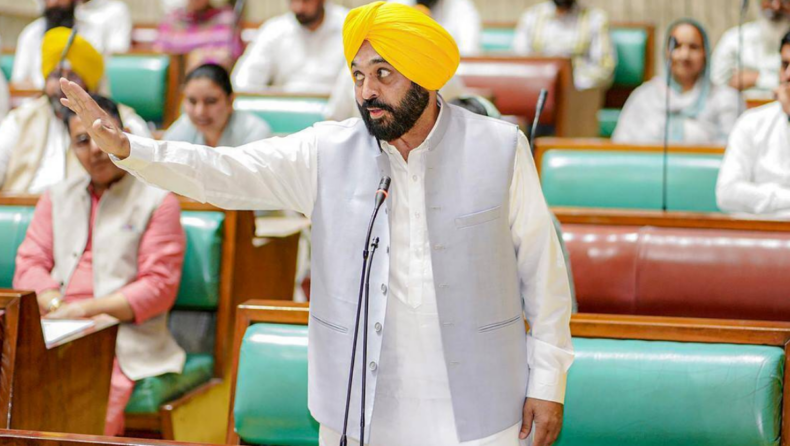This Tuesday, the Punjab State Assembly where the Aam Aadmi Party is in the majority, passed an amendment to the Punjab Police Act (2007). They amended section 6 of the act, intending to bring about an independent mechanism for the selection and appointment to the post of the Director General of Police (head of the Police Force). It must be marked, under the seventh schedule, law and order come under the state list. What is the contention then? In the case of Prakash Singh V/S Union of India, the Supreme Court laid down certain police reforms one of them ceasing the state’s autonomy to appoint its chief of police. Hence the conflict, if the central government should have a say in states’ appointment of DGP.
About Punjab, the state government led by the aam admi party which is in its second year has had multiple short-lived DGPs. The first DGP- Dinkar Gupta was inherited from the congress government and later went on leave. Next, Iqbal Preet Singh lasted two months was later removed by AAP. Next, came S Chattopadhyay he however was also removed after a ‘security lapse’ involving PM Modi. Then, came in an empanelled (someone who has been appointed by the panel- Union Public Service Commission) DGP- Mr V K Bhavra. Under his watch, a police station was attacked in Punjab with a rocket-propelled grenade and the assassination of Siddhu Moosewala. For these two events, he was fired by the state government. Since then, they haven’t bothered to go through the UPSC procedure to appoint another DGP instead they have appointed an officer of their own choice- Gaurav Yadav. To appoint this new DGP contravening the supreme court mandate procedure, they have passed the new amendment. The bill if enacted, will change the procedure laid by the supreme court in Prakash Singh and others V/S Union of India, wherein the court held that the DGP would be selected by the state from three officers shortlisted by the UPSC among the list of eligible officers sent by the state.
The amendment says the state government will set up a seven-member panel that shall assist the state in picking the DGP. The chairperson will be a retired chief justice of the local High Court or a senior judge of the High Court. This particular amendment also states none of the previous court judgements of any degree will have no meaning. This runs directly in the face of the supreme court’s 2006, 2018, and 2019 judgements wherein non-BJP states’ ask for the liberty of appointing a DGP of their own choice was rejected. The Supreme Court further added if any state has passed such a law making themselves eligible to appoint their own DGP the law will not be accepted.
The amendment is still a bill implying it is yet to turn into an act. It still required the governor’s permission. As seen previously, in non-bjp states governors are never in a hurry to sign off bills passed by that state’s assembly. Nevertheless, Punjab is the latest non-BJP state to defy the centre and three supreme court judgements.












